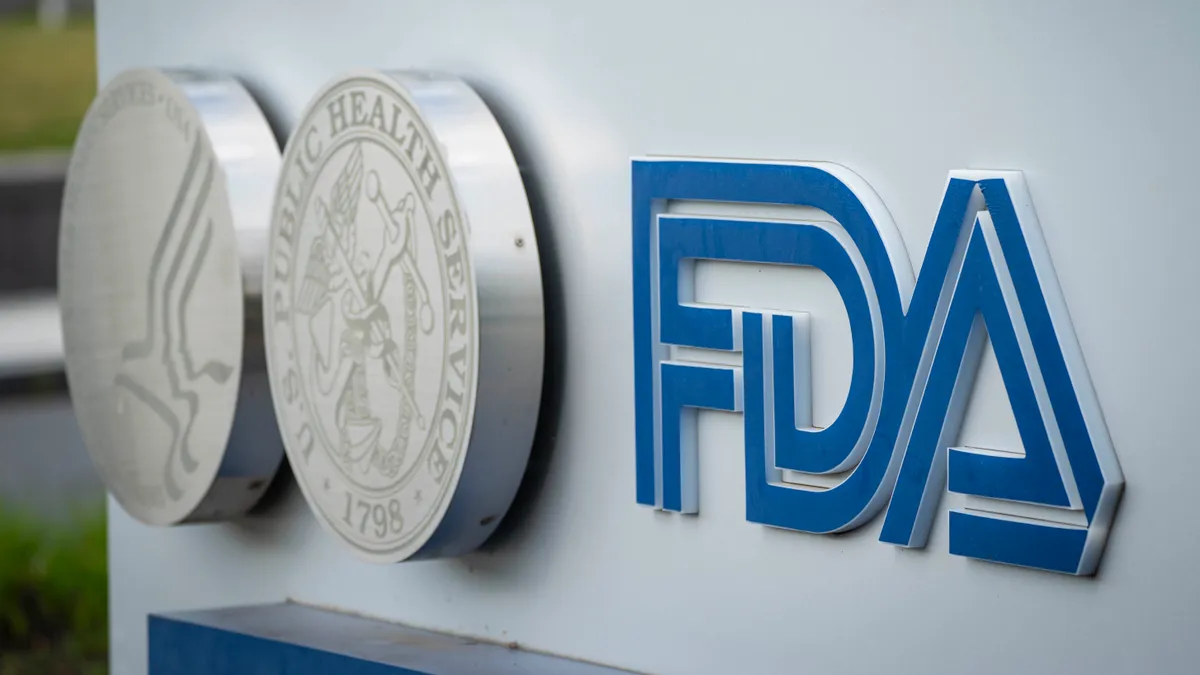Dive Brief:
- FDA proposed a rule creating a new category of over-the-counter hearing aids, allowing the products to be sold directly to consumers in stores and online without a medical exam or being fitted by an audiologist.
- The agency's proposal is meant to increase competition in the lucrative hearing aid market and improve access to the high-cost technology for millions of Americans through a safe, effective and more affordable OTC alternative. While the rule, if finalized, would more clearly define prescription hearing aids, FDA said it would not change the classification of existing device types.
- A Cowen analyst said in a Tuesday note the FDA's proposed rule would effectively allow consumer electronics manufacturers to get into the hearing aid space that has been dominated by companies such as ReSound, Sonova and William Demant. The Wall Street Journal reported last week that Apple is studying ways to make its AirPods into a health device, including for enhancing hearing.
Dive Insight:
President Joe Biden in July issued an executive order directing HHS to consider issuing proposed rules within 120 days for allowing hearing aids to be sold over the counter. At the time, the order noted that the four largest hearing aid manufacturers control 84% of the market and that hearing aids, which cost more than $5,000 per pair, are "so expensive that only 14% of the approximately 48 million Americans with hearing loss use them."
FDA said its proposed rule is meant to address barriers that "impede the use of hearing aids" in adult individuals with mild to moderate hearing loss, such as high cost and the perceived benefit relative to price.
HHS Secretary Xavier Becerra in a Tuesday media briefing said that safe, effective and high-quality hearing aids are way too often out of the reach of Americans due to the price tag.
"With today's proposed rule, we would usher in a new system of over-the-counter options," Becerra said. "We open the door to an easier process and a more affordable process ... this allows us to put hearing devices more in reach of communities of color and the underserved that have often been left out and lacked access to hearing aids."
Becerra contends that the FDA's proposal will foster competition among hearing aid manufacturers and encourage companies to develop new devices that cater to consumer needs.
Acting FDA Commissioner Janet Woodcock added that thanks to the proposed rule consumers would "have greater control over their hearing aid purchasing decisions at stores nationwide or online" without a prescription.
FDA is proposing "to define OTC hearing aids and establish applicable requirements; amend existing rules for consistency with a new OTC category; repeal the conditions for sale applicable to hearing aids; amend the existing labeling requirements for hearing aids; and update regulations relating to decisions on applications for exemption from Federal preemption that would become obsolete as a result of changes to the hearing aid requirements."
FDA also released an accompanying draft guidance on hearing aid devices and personal sound amplification products, or PSAPs, which describes the differences between these two product categories and is meant to clarify their regulatory requirements. PSAPs are not medical devices regulated by the agency.
Congress in 2017 passed a bipartisan proposal, signed into law by President Donald Trump, to allow hearing aids to be sold over the counter. However, FDA under the Trump administration did not issue the proposed rules by August 2020. Biden's July executive order made it a priority.
Jefferies analysts in a July note at the time of Biden's executive order said they "continue to see potential uptake of OTC devices in the mild hearing loss category (only 10% penetrated today) and limited disruption to the moderate to severe hearing loss segments, which account for most of the current hearing aid sales."
Jeff Shuren, director of the FDA's Center for Devices and Radiological Health, on Tuesday said hearing aids for severe hearing loss or for users younger than 18 years of age would remain as prescription devices.
FDA will accept public comment on its proposal for 90 days and the regulation would become effective 60 days after publication of the final rule.












